Partnership with Technical University of Munich advances as alumni reunite
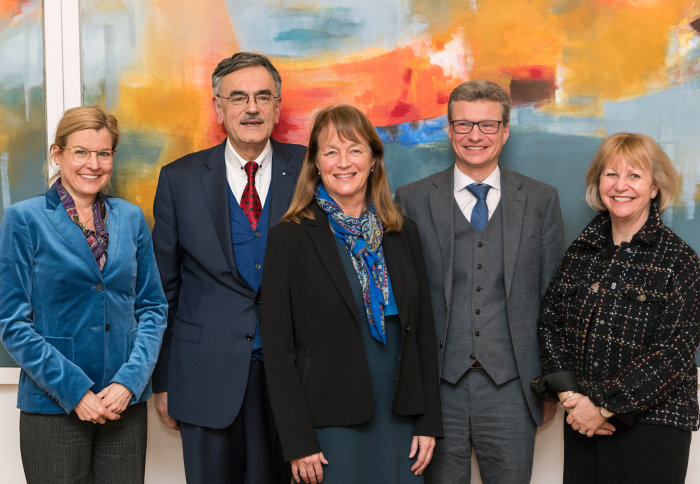
Professor Juliane Winkelmann, President Wolfgang Herrmann, President Alice Gast, Minister Bernd Sibler and Vice President Maggie Dallman
Imperial’s flagship partnership with the Technical University of Munich took a step forward this week.
A cross-faculty group of Imperial academics joined President Alice Gast in meeting their peers from TUM, the Bavarian science minister and German and British government officials to further Imperial-TUM and UK-German collaboration in research, innovation and education.
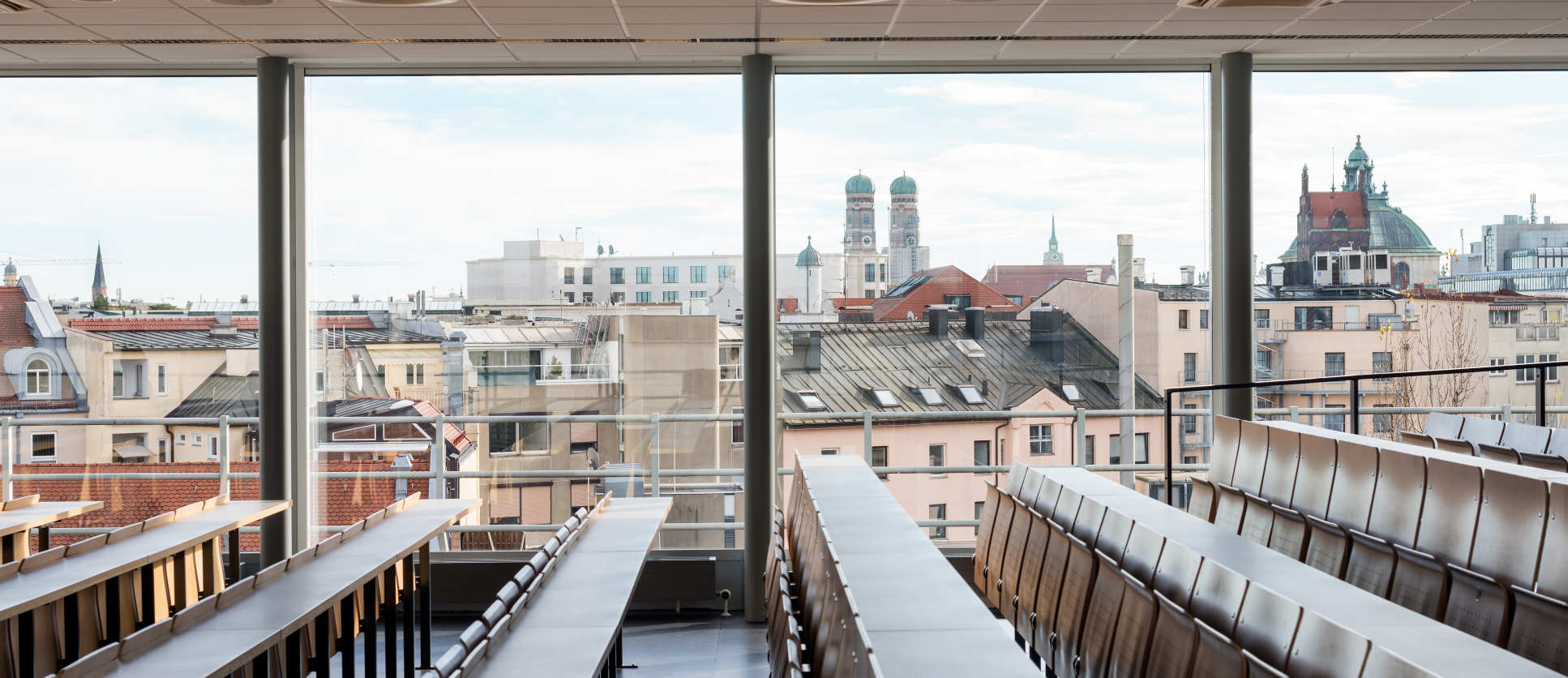
They are working to progress Imperial and TUM’s ‘flagship agreement’, signed in October, which kickstarted plans to forge new research, education and industry links between two of Europe’s most innovative universities.
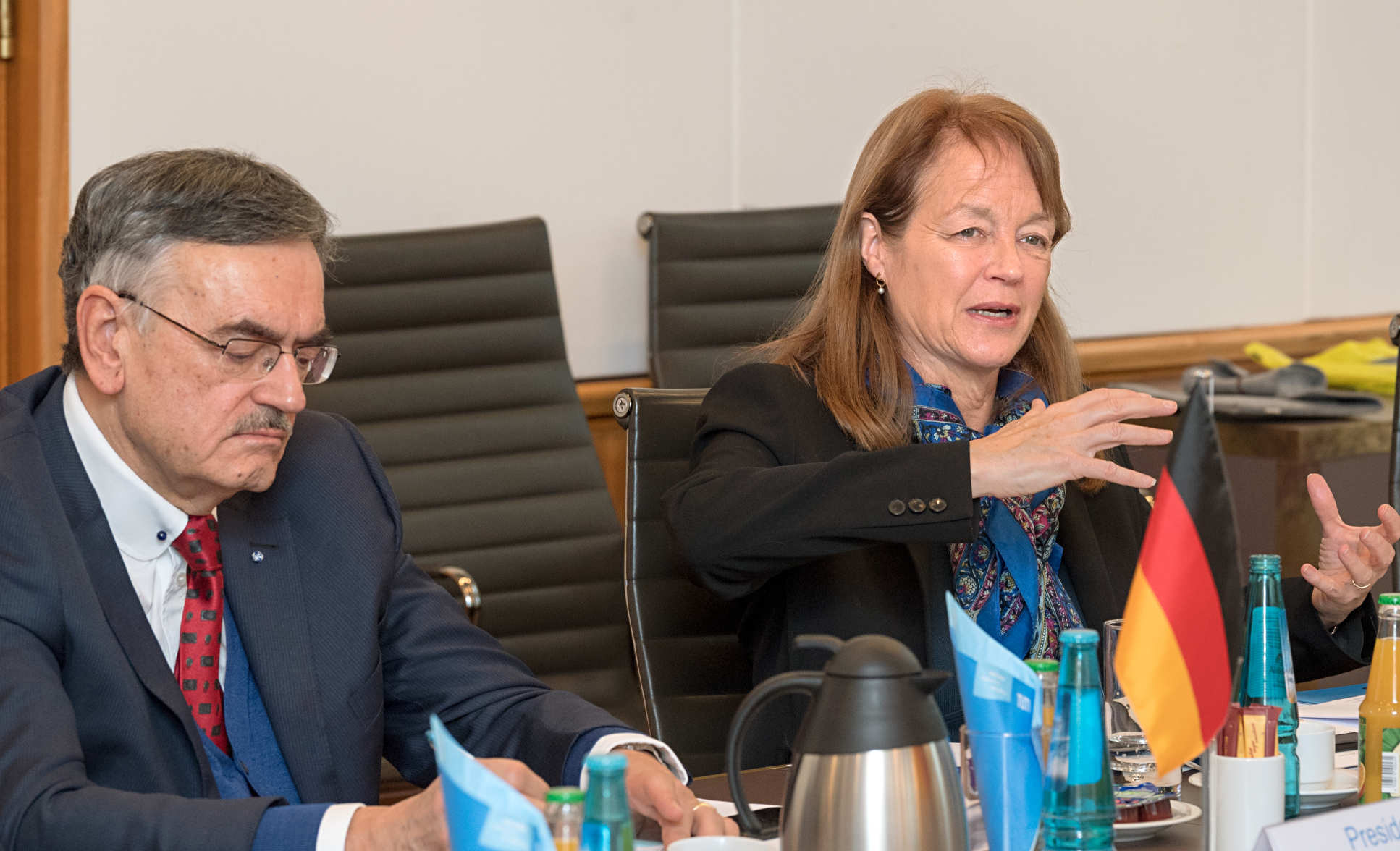
President Gast said the TUM cooperation shows one way in which “We’re committed to Europe and we know this partnership will persist whatever happens with Brexit… scientists have always been good diplomats and collaborators, even in times of political challenge.”

Imperial experts in artificial intelligence, medical robotics, energy and the environment, bioengineering, neurotechnology, biomathematics, synthetic biology, catalysis, synthetic chemistry, laser physics, and aerospace engineering, led by Vice President (International) Professor Maggie Dallman, met their counterparts at TUM.
'Perfect partners'
 TUM President Wolfgang Herrmann spoke about the university’s recent success in securing four ‘clusters of excellence’ in the German Universities Excellence Initiative, and Imperial’s role in future applications.
TUM President Wolfgang Herrmann spoke about the university’s recent success in securing four ‘clusters of excellence’ in the German Universities Excellence Initiative, and Imperial’s role in future applications.
Professor Herrmann noted the great academic and cultural overlaps between Imperial and TUM: “In Europe, Imperial is the university with the most perfect portfolio matching TUM’s.” This ranges from tackling societal challenges through artificial intelligence to working to improve gender equality and diversity within Europe’s top technical universities, he said.
Imperial President Alice Gast said: “In the European Union, TUM is one of our closest partners – we have a very special relationship.” She spoke of Imperial and TUM’s shared international perspectives in solving grand challenges and common belief that “education and research are intimately entwined and synergistic.”
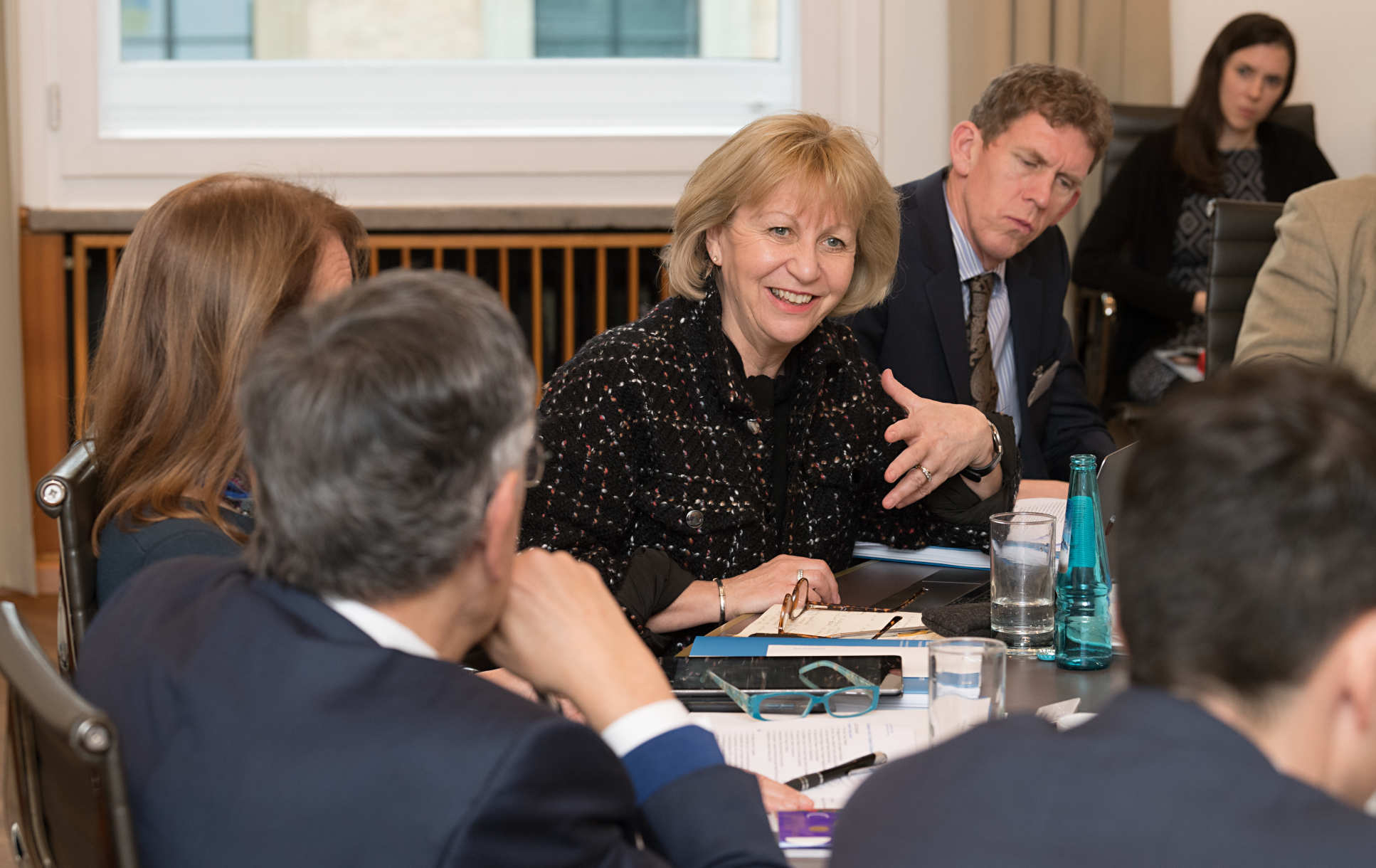
Imperial’s Vice President (International) Professor Maggie Dallman said “It’s critical that we bring the public along with us,” as TUM and Imperial’s discoveries drive technological and social change. She highlighted Imperial’s pioneering community engagement work in White City.
Deep connections, greater potential
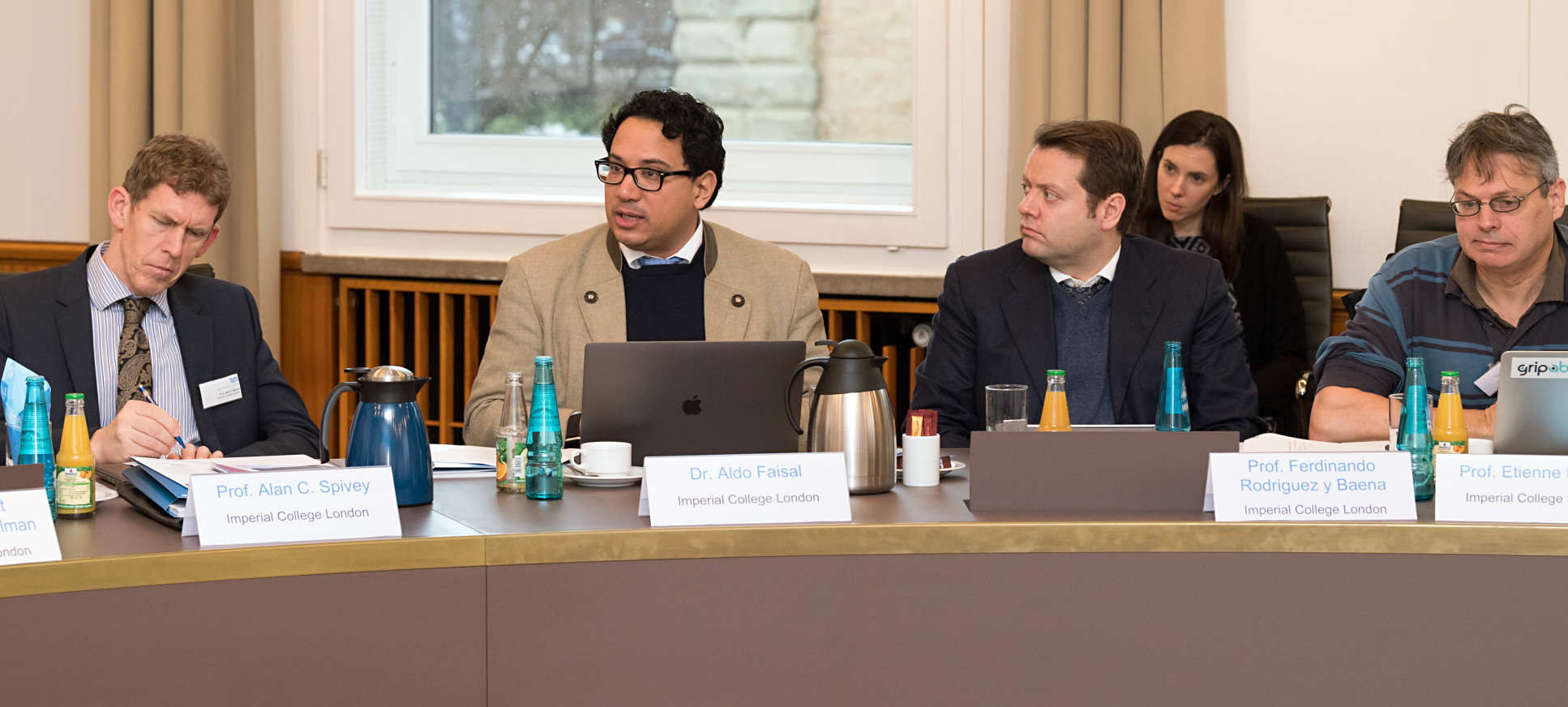
Reader in Neurotechnology Dr Aldo Faisal said that Imperial’s network of 76 professors working in AI offer a rich seam of potential collaborators, while Professor Ferdinando Rodriguez y Baena showcased the College’s 40-strong Imperial Robotics Forum.
TUM’s President-elect Professor Thomas Hofmann explained how TUM, like Imperial, has cultivated a rapidly growing number of high-tech startups, many of which will want to develop new connections in London, and vice versa.
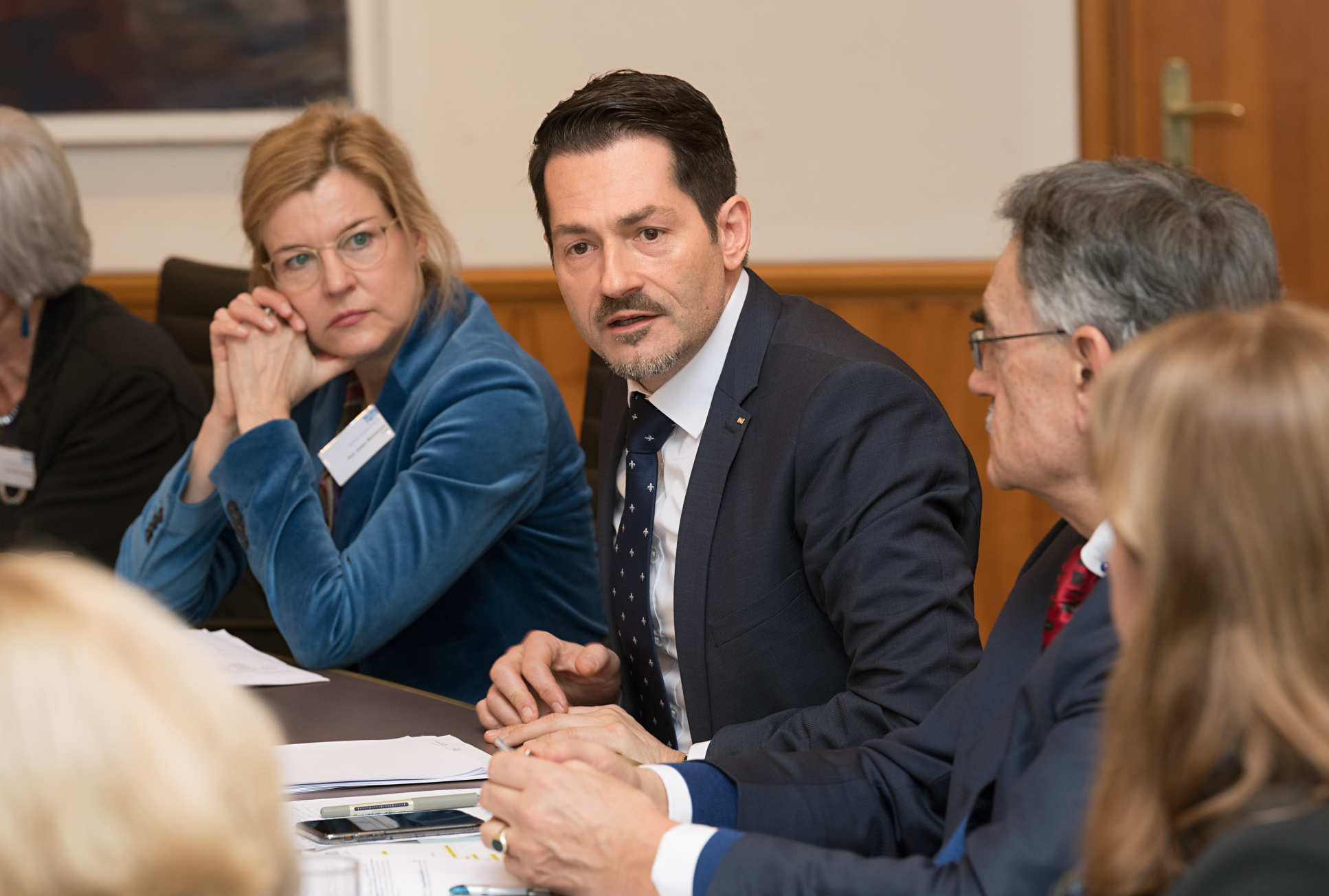
Many TUM and Imperial researchers are already familiar with the other institution. In the past five years, both universities have produced more than 500 joint research papers, and worked together on 27 EU-funded projects.
TUM’s Chair of Cognitive Systems Professor Gordon Cheng spoke fondly of his 20-year series of collaborations with Imperial, while neurogeneticist Professor Juliane Winkelmann reminisced about her time as a visiting medical student at Imperial’s Hammersmith Campus.
High-tech cancer research
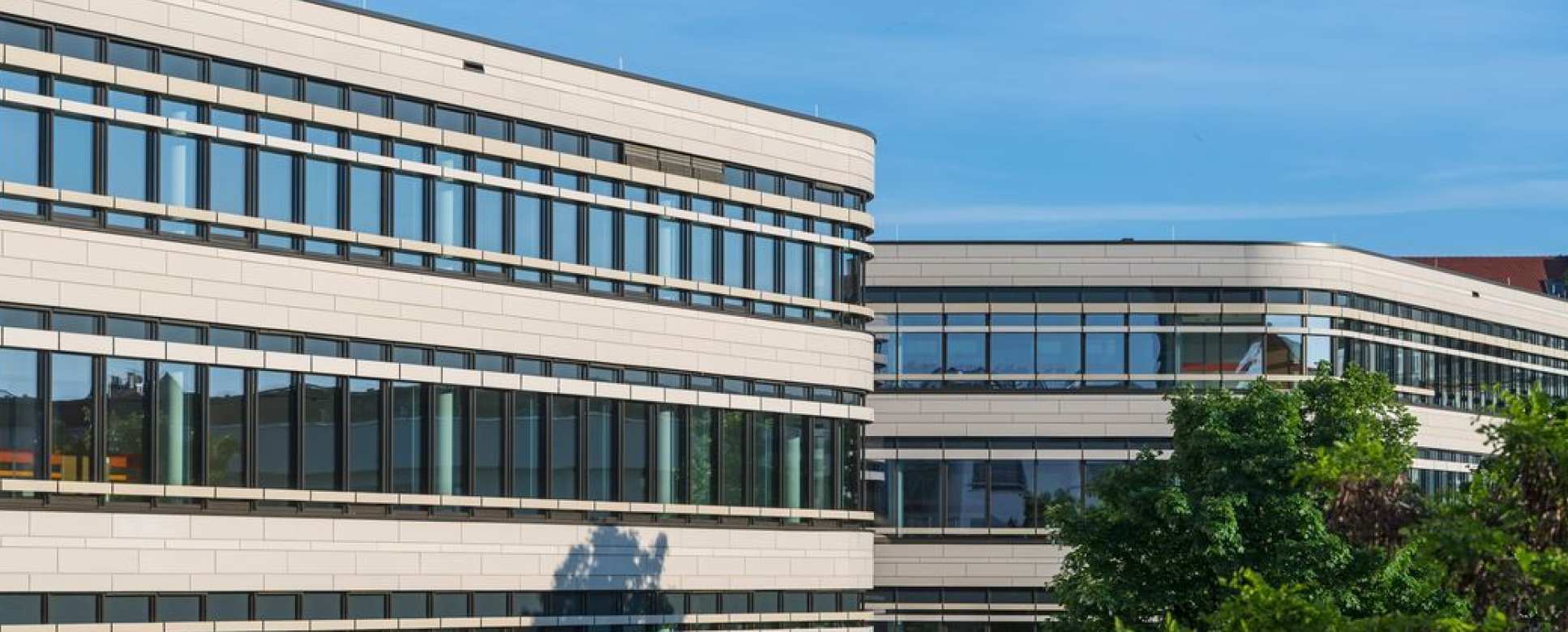
The Imperial team toured the new Central Institute for Cancer Research (TranslaTUM) where researchers and surgeons are encouraged to collaborate across disciplines and without hierarchy. They saw cutting-edge imaging and animal research labs, photoacoustic tomography and next generation haematology diagnostics.

Government backing
Representatives from Germany’s Federal Government joined Bavarian Science and Arts Minister Bernd Sibler in welcoming the partnership between Imperial and TUM.

Minister Sibler said: “When we visited Imperial College in 2017, we saw the university’s outstanding performance,” and its great potential to do even more with Bavarian partners. He added: “We have to find solutions to difficult situations… It’s a political statement that you’re here – as a pure European, it’s important that we cooperate after Brexit.”
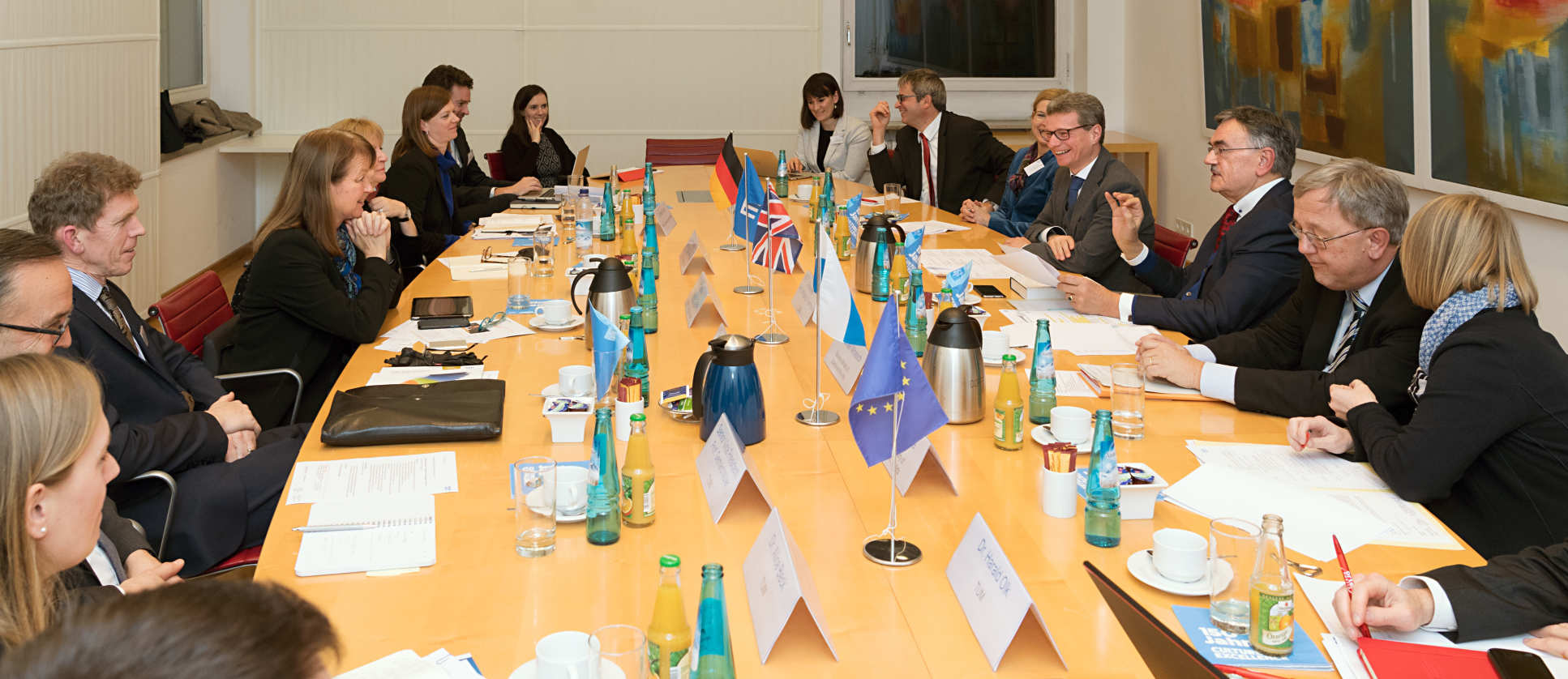
President Gast hailed a “wonderful visit and the start of a fruitful collaboration.” Speaking with the Minister, she pointed to the “parallels between the UK’s Industrial Strategy and Germany’s High Tech Strategy, and we should take advantage of those opportunities.”
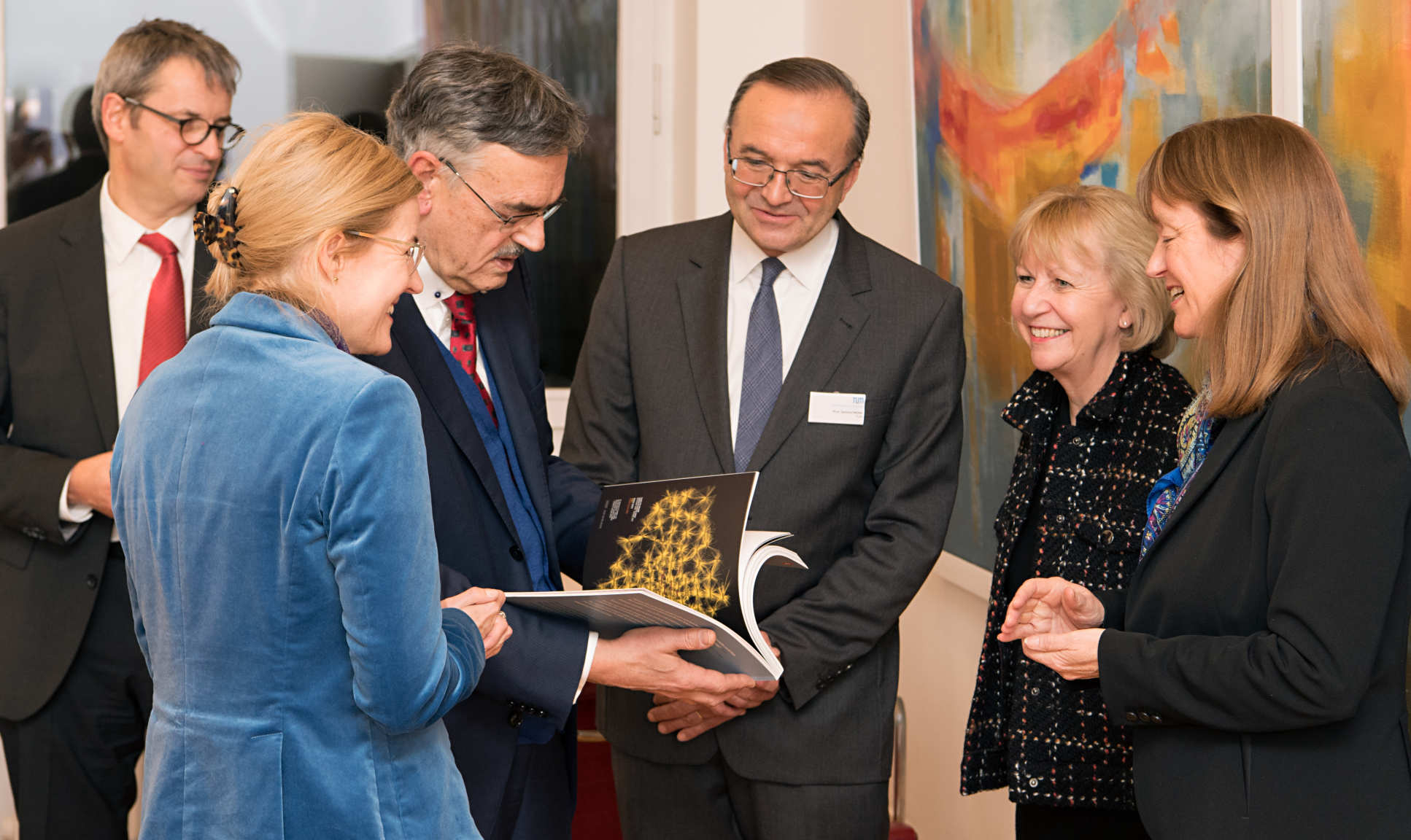
Alumni gathering
Following the Imperial-TUM workshops and meetings, some of Imperial’s 300 Bavaria-based alumni gathered at TUM for a special reunion.
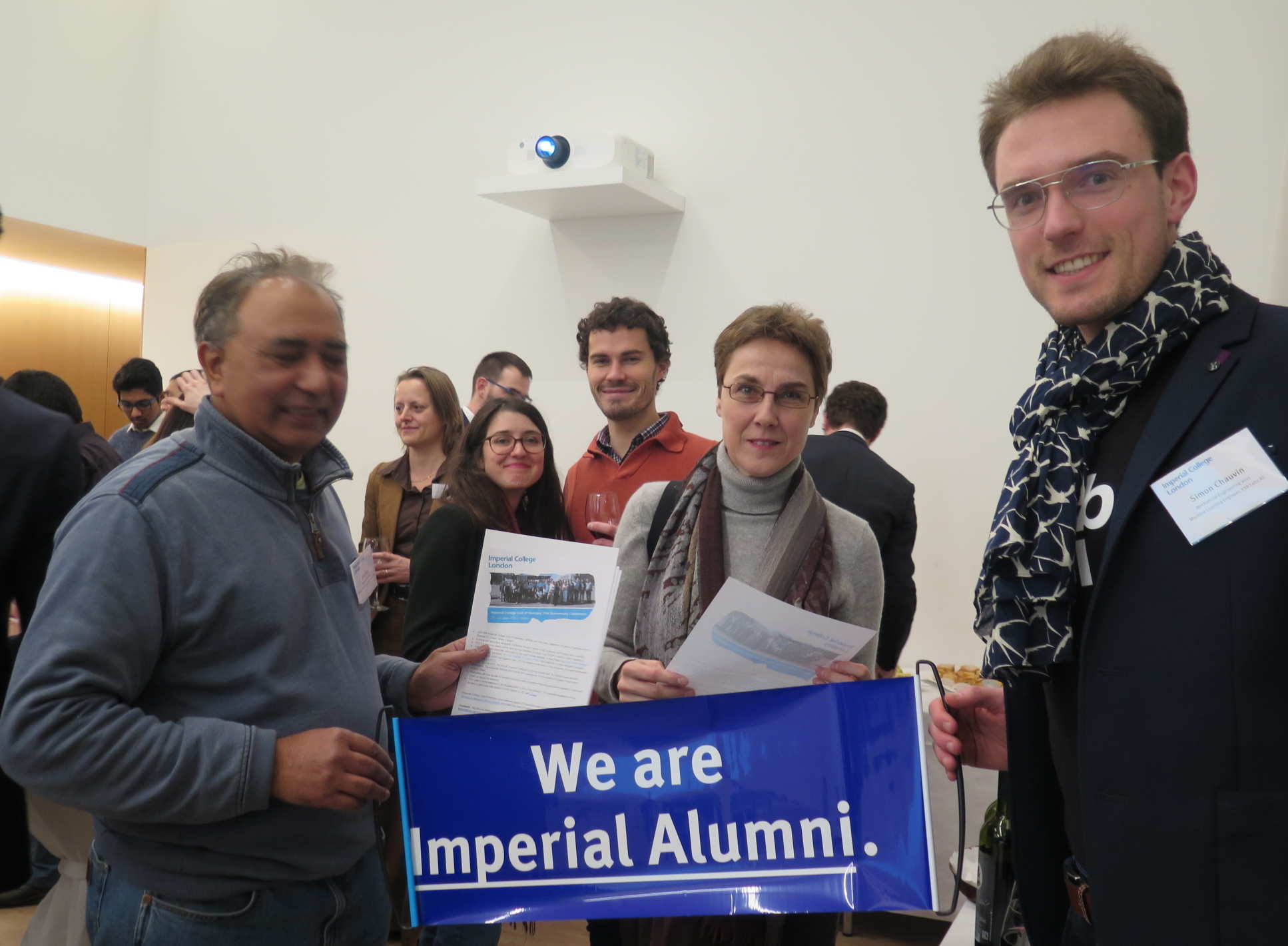
Updating the group on Imperial’s growing European collaborations, including with TUM, President Gast said: “It’s the strength of our alumni and friends network that can make these partnerships work really well.”
Attendees included Daniel Wagner (PhD Computing 2010) who is leading a series of social events for alumni in Munich, and Jack Kang (Physics 1975, MSc 1978) who, alongside other committee members, is arranging a special Imperial College Club of Germany 20th anniversary trip to London for the Alumni Weekend and Great Exhibition Road Festival.
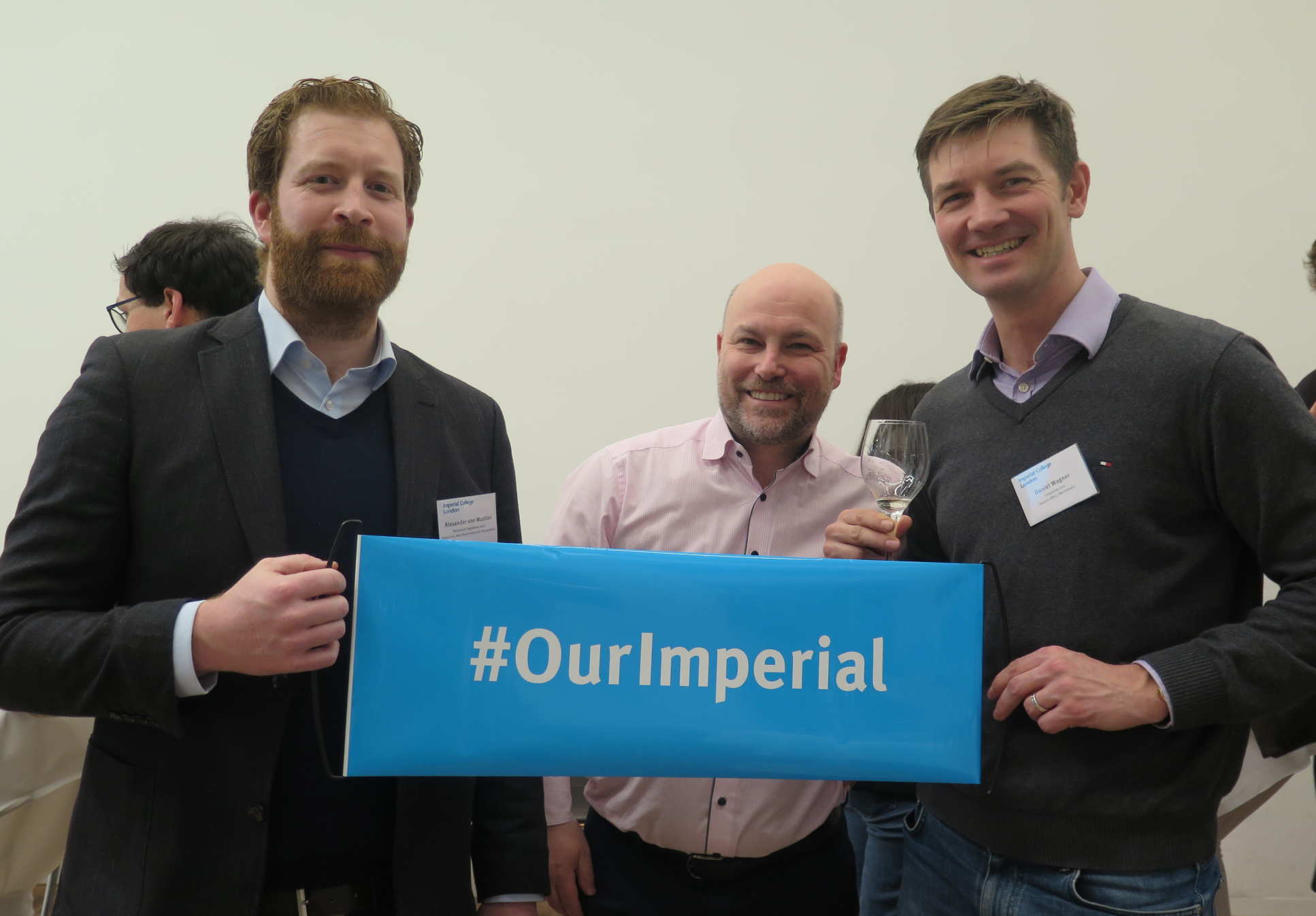
Mr Kang returns regularly to Imperial, typically staying in College accommodation and showing friends and family his alma mater. He founded the College’s United Nations Association, where he invited a fascinating array of guest speakers, including a First World War Admiral and Liberal leader Jeremy Thorpe.  Anette Lippert (Biology 1993, MSc Environmental Technology 1994) creatively applied her Imperial education to a highly successful career intersecting technology, marketing and green innovation. She regularly returns to the College, attended the last two Imperial Festivals and is looking forward to this year's.
Anette Lippert (Biology 1993, MSc Environmental Technology 1994) creatively applied her Imperial education to a highly successful career intersecting technology, marketing and green innovation. She regularly returns to the College, attended the last two Imperial Festivals and is looking forward to this year's.
Looking back to her student days, Ms Lippert said she was an Anglophile because “England’s dry sense of humour overlaps with the dry jokes of Berlin – where my parents are from.”
“I still have a lot of friends from Imperial, and I keep in touch with them all over the world,” she added.
Ms Lippert’s 13 year old son, who is aspiring towards a career in computer programming, was especially taken by Imperial and would now like to study there.
Alister Clarke’s (MEng Chemical Engineering & Chemical Technology 1989) 15 year old daughter was also “fizzing with excitement” at the idea of studying at Imperial one day.  Chemistry Professors Mimi Hii and Alan Spivey chatted to alumni about the progress of Imperial’s White City Campus and their Department’s growth in the Molecular Sciences Research Hub.
Chemistry Professors Mimi Hii and Alan Spivey chatted to alumni about the progress of Imperial’s White City Campus and their Department’s growth in the Molecular Sciences Research Hub.
Munich-based couple Jenny Cherkasky (MSc Mechanical Engineering 2015) and Charles Peurois (MEng Mechanical Engineering 2013) met via Imperial, having both taken part in Erasmus programmes – going on to complete degrees – with the College.
Mr Peurois had happy memories of the College Go Karting Society and taking an industrial year with Mercedes F1, which included working on the Spanish and British Grands Prix.
Now working for a sustainable energy startup, he said: “Imperial helped a lot with my career. Its academic excellence and the chance to spend a year in industry opened a lot of doors.”
Chinmay Kakatkar (Computing 2012) loved living in Beit Hall as a student because “It was so close to lectures and friends,” though he was less keen on his desk in Beit “literally shaking from the soundsystem at a couple of the annual parties”.
Article text (excluding photos or graphics) © Imperial College London.
Photos and graphics subject to third party copyright used with permission or © Imperial College London.
Reporter
Andrew Scheuber
Communications Division